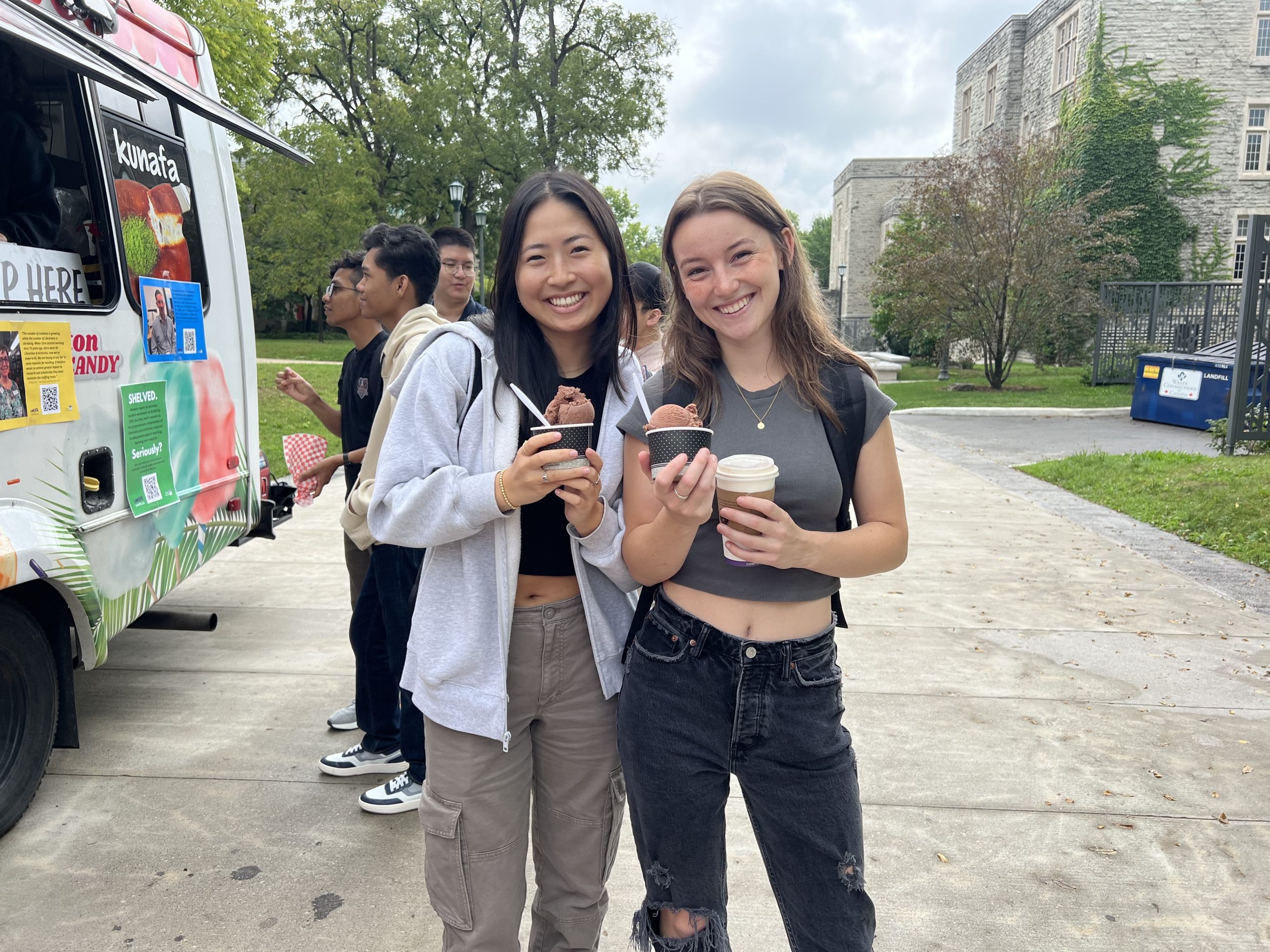Students
UWOFA Strike FAQ 2023
Background
The UWOFA negotiating team, led by Johanna Weststar, has been in negotiations with Western’s administration for a new collective agreement since May. The Parties were engaged in productive and collegial bargaining throughout the process. However, it is the Employer’s refusal to commit to appropriate Human Resource planning or to adequately compensate Librarians and Archivists for their important work, that has brought things to the point where we must now actively prepare for a potential labour disruption. When we broke for the summer it had already become clear that the Employer was immovable regarding a number of our key issues, including complement and a fair monetary package, and as result we requested to have a conciliator appointed by the Ontario Ministry of Labour. When we returned after this two-month break, we hoped to see some movement in the Employer’s position, but none was forthcoming, leading us to conclude that bargaining was at an impasse.
A strike vote was then held from September 13-14 and 100% of ballots cast were YES votes, empowering the UWOFA Board to authorize strike action, should it become necessary. The negotiating team also asked Paul Pooler to file a “No Board” report with the Ministry of Labour – this was filed on September 17th, resulting in UWOFA’s Librarian and Archivist Bargaining Unit being in a legal strike position as of 12:01 am on October 4th. We have set this date as a strike deadline, unless a settlement is reached or seems imminent. .
While UWOFA continues to bargain in good faith with the goal of reaching a fair and equitable collective agreement for all Librarians and Archivists, we are also preparing for a strike or lockout. Strike preparedness sends a strong message to the Employer about the unity and conviction of Members in the Bargaining Unit. It also sends an unequivocal message that the membership stands behind its negotiating team.
These guidelines represent policy adopted by the UWOFA Board of Directors; they represent what your Board is expecting of all Bargaining Unit members. The decision to honour or break a strike is the individual’s own. This is something that neither the Association nor the Administration can decide for you.
This FAQ is also a working document, which is subject to changes as necessitated by the duration of a potential strike action. Please check back for updates.
Frequently Asked Questions for Students
A strike is very much an action of last resort, and UWOFA hopes our Employer will negotiate a fair deal that averts this outcome. A deadline of October 4, 2023 has been set, but UWOFA and Western’s Administration can negotiate right up to the deadline or even together agree to delay it, if it feels like we’re close to reaching a deal.
We know talk of a labour disruption can cause some anxiety, so we’ve prepared a set of answers to frequently asked questions:
Q: What is a strike?
Legal strike action is the right of unionized workers to withdraw services or refuse to work (or continue working) with the aim of demonstrating the collective concerns and resolve of the bargaining unit. A strike is not an end in itself, but rather a means to obtaining a fair and equitable collective agreement. Legal strike action does not happen overnight and it is not a decision that is taken lightly.
Q: What are the issues?
We are working on three main issues in this round of bargaining for our Librarians and archivists: Increasing the number of Librarians and Archivists at Western, proper recognition of the professional status and expertise of Librarians and Archivists, and a fair monetary package. Workloads and student to Librarian and Archivist ratios are at an all time high and are projected to go up with Western’s plan to increase student enrolment to 50,000 by 2030. The number of Librarians and Archivists at Western keeps going down, yet their work is indispensable and crucially underpins the success of Western’s academic mission of teaching, learning and research. Western needs more Librarians and Archivists!
Q: How do these issues affect students?
The quality of your education is deeply connected to the work of Western’s librarians and archivists who support both students and faculty in academic research and learning.
Librarians & Archivists are not just bookkeepers or shelf organizers; they work diligently to ensure that faculty, students and researchers have access to the resources they need for their teaching, learning and research
Q: How will the strike affect me?
In the event of a strike the libraries will remain open, however, our librarians and archivists will not be in the library to advise you about your scholarly projects, nor will they be available to visit classrooms.
Out of respect for the strike, London Transit buses will not cross the picket lines and will not be driving onto campus, so bus routes will be adjusted accordingly. You may have to walk a bit further than usual as most of the new stops will be outside of university grounds.
Q: What will it involve?
You will see pickets at university main entrances. These pickets will not prevent access to the university grounds. We encourage you to stop and chat with our librarians and archivists on the picket lines. If you want, you can even join us! Please report to a picket captain to sign in if you join one of our picket lines.
Q: How long will it last?
The length of the possible strike will be determined by progress at the bargaining table. This involves fair and just negotiations between Western’s Administration and UWOFA.
Q: Is there anything I can do?
You can express your support for UWOFA by going to the take action page of our website to send an email to President Alan Shepard, Provost Florentine Strzelczyk, Board Chair Keith Gibbons, Vice-Chair Sarah Shortreed, and Chief Librarian Catherine Steeves. You can also help spread the word about the important issues Librarians and Archivists at Western are fighting for by speaking to your classmates and getting loud on social media.
Some students have begun helping UWOFA by distributing leaflets on campus. While our Librarian & Archivist Members cannot continue these activities during a strike, students and others are welcome to do so. Please contact David Heap djheap@uwo.ca if you want to take part in such support activities.
Students can also join UWOFA picket lines. This is an excellent opportunity to demonstrate to Librarians and Archivists and to the University that you support UWOFA’s efforts to negotiate a fair deal. Please report to the Picket Captain when you join any picket line.
Q: Where can I get more information?
Go to uwofa.ca
Twitter: @UWOFA1
Instagram: @uwofaco
Facebook: UWOFA
Get in touch with UWOFA at uwofa@uwo.ca
Western students support Librarians & Archivists


